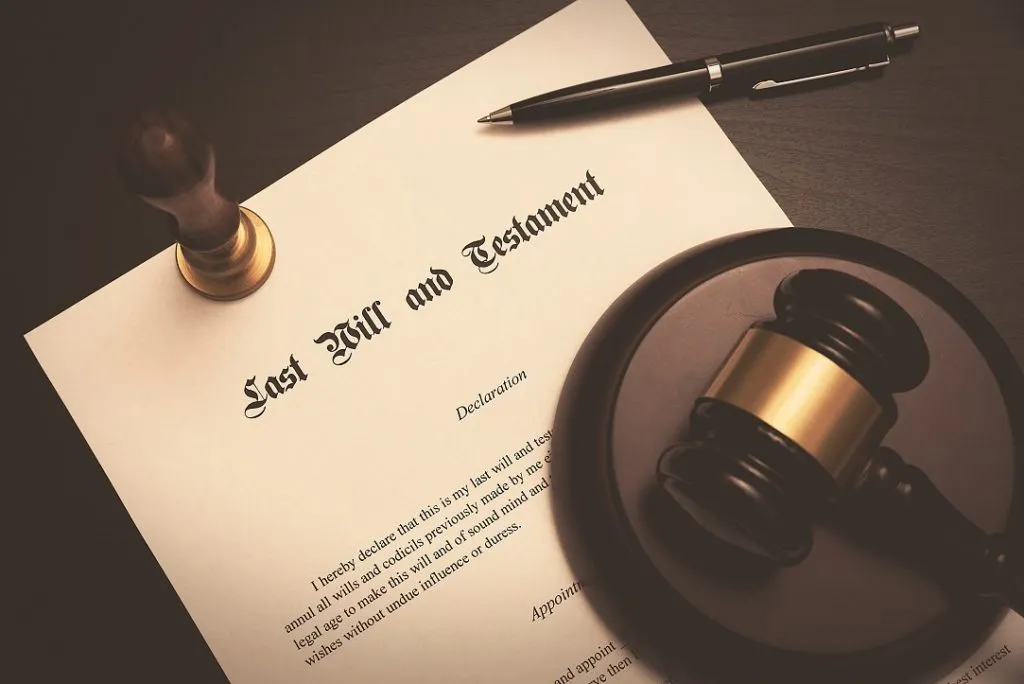The District Court will issue a certificate of probate if a Distribution of the estate of a deceased person’s estate is administered privately. When the heir transfers the property from the deceased to himself or herself, the certificate of probate must be sent to the Norwegian Mapping Authority along with the form “Declaration of ownership through inheritance.” In this case, the heirs of the dead will often distribute the inheritance individually or with the help of an executor or other administrator.
Distribution of the estate of a deceased person

Distribution of the estate
The District Court will issue a certificate of an undivided estate when a spouse or cohabitant has the right to take over the distribution of the estate of a deceased person’s full inheritance. When the surviving spouse or cohabitant wishes to register the property in his or her name, the certificate of the undivided estate must be sent along with the form “Declaration of ownership through inheritance.”
Administration of a deceased person’s estate by a judge
The District Court will oversee the partition of inheritance and settlement of a deceased person’s estate if judicial administration is required. This is normally done through a trustee who has been appointed. The District Court will issue papers to the trustee confirming the appointment.
When an estate is administered in its whole, the surviving spouse or co-habitant must sign the declaration of ownership alone.
A representative, executor, attorney, broker, or real estate agent can also sign the statement of ownership.
Inheritance transfer and selling
Occasionally, the heirs will agree that the property they acquired should be sold or that only one of the heirs should be the sole owner. In such cases, in addition to the declaration of ownership, the heirs must fill out a deed or form for transferring the title of a housing cooperative unit.
The heirs who have accepted debt liability can sign the deed on their own.
The return address on both the declaration of ownership and the deed must be the same if they are sent for registration in the same package. This will ensure that the correct individual receives the invoice for fees and stamp duty.
Stamp duty and registration fees
The cost of registering a document is assessed per document. The cost of registering real estate is NOK 585. Stamp duty of 2.5 percent of the property’s market value will be calculated in some cases.
The cost of registering a housing cooperative unit is NOK 480. When transferring housing cooperative apartments, no stamp duty will be applied.
If the transfer is to a surviving spouse, there is an exemption from paying registration fees.
When is it appropriate for an executor to disperse an estate’s assets to beneficiaries?
The following conditions must be met: the estate assets must be divided at least 6 months after the Distribution of the estate if a deceased person died; the executor must have issued a 30-day notice of his or her purpose to distribute the estate, and the notice’s time limit has expired.
Distribution of the estate – How are intestacy regulations applied to the distribution of an estate?
The estate is transferred to the beneficiaries once the debts have been paid. Beneficiaries may be mentioned in the will, or they may need to be found via intestacy criteria (see below).
What is the procedure for distributing assets in probate court?
The probate court is responsible for enforcing the distribution of the estate of a deceased person’s assets by the deceased’s desires as expressed in the will. The court starts the procedure by giving the executor of the will permission to lawfully transfer the wealth to the named beneficiaries.
How is a deceased person’s estate distributed?
If the decedent established a trust, trust assets will be dispersed in this manner. If the distribution of the estate of a deceased person dies without a will or other means of distributing their estate, their property will be dispersed according to their state’s intestacy laws. Transfer money from your bank account. Bank accounts are one type of property that can be distributed without going through probate.
When does an estate’s executor have to divide the estate?
The executor or administrator (or next of kin) can divide the estate after paying the Distribution of the estate of a deceased person’s obligations once probate or administration has been granted (or if it was not required) and a notice of intended distribution has been issued. If a legacy (monetary gift) is not distributed within 12 months, the beneficiary is entitled to interest.
Distribution of the estate – Is there a limit to how much of an estate payout is taxable?
Distributions from an estate. Although an estate is required to record this revenue, it has the option of distributing it to heirs. This income may be distributed along with the inheritance by the estate. For example, if an estate makes a $10,000 distribution to an heir, $2,000 to $3,000 is likely to be leftover.
How long does it take for the remainder of an estate to be distributed?
The Personal Representatives can begin making the final distribution of the residuary estate once all the Beneficiaries have approved the Estate accounts. The Personal Representatives are responsible for distributing the remainder of the Estate by the Will or Intestacy Rules.
When is a deceased person’s estate distributed?

Distribution of the estate
The assets and interests owned by the Distribution of the estate of a deceased person can be called in and dispersed after an executor is legally empowered to deal with the assets of a Distribution of the estate of a deceased person’s estate, usually after securing a grant of probate or letters of administration. This procedure is known as administration.
The Disposal Act of 1958 regulates the distribution of an estate when a person dies intestate, that is, without leaving a Will. The Act establishes a mechanism for transferring a deceased person’s wealth that prioritizes the three primary groups of his or her family members: spouse, children, and parents (s). First and foremost, it is important to clarify that this Act only applies to non-Muslims in Peninsular Malaysia and Sarawak.
Under the Distribution Act 1958, intestate also covers “any person who leaves a will but dies intestate as to some beneficial interest in his property,” whereas an issue is defined as the “children and descendants of deceased persons” in Section 3 of the Distribution Act 1958.
Read more: What Causes an Inheritance Dispute?